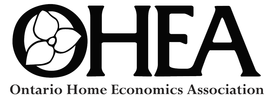|
by Mary Carver, P.H.Ec. Two keywords appear in definitions of food literacy – ‘knowledge and skills.’ The Food Literacy for Life Study (2013) describes “a set of skills and attributes that help people sustain the daily preparation of healthy, tasty, affordable meals for themselves and their families.” Knowledge of food security and local food further explains food literacy. Despite healthy lifestyle trends, there is growing concern about a general lack of time, knowledge and skills to prepare healthful, affordable meals at home. Kids today rarely learn to cook. Families microwave a commercially prepared entrée, or eat-out en route to their next activity. Not a serious issue − until the habit becomes a frequent practice. And it does! Author Michael Pollan says “the problem is that what we often eat, is not real food. We’re consuming it on the run – in the car, in front of the TV, and increasingly alone.” Home cooking began to decline in the mid 1960’s about the time more women sought employment outside the home. The food industry was quick to liberate women from the kitchen after a long workday. Disposable income had increased. Processed food, prepared entrees and fast food outlets answered the call for help. Ready-to-eat and super-sized servings increased consumption of fat, sugar and sodium. As rates of home cooking decreased, rates of obesity increased. It seems Type II diabetes and heart disease followed suit. Clearly, home cooking has benefits! Rosie Swartz, RD writes, “It’s pretty tough to meet nutrition recommendations unless you’re making meals yourself. A Community Health Study showed that Canadians consume a daily average of 3,000 milligrams of sodium. Twice the daily recommendation! The culprit? Processed foods which deliver a whopping 77% of that sodium.” Consider this! We have more control over what we eat than we do over many other aspects of our lives! “We need to understand food from the ground up” claims the Harvard University Food Literacy Project. People must know where and how food is produced to make more-informed choices. Produce that spends ten days in transport or two weeks in a fridge has lost some valuable nutritional benefit. Everyone needs food skills. Bill Hullah, President of the Community Share Food Bank, Toronto, says, “Recipients will turn down good quality donated produce when they don’t know how to prepare it.” “Improved food literacy would advance the health of Canadians,” the Conference Board of Canada reports. Many people can’t understand food labels, make a meal at home, stick to a food budget or reduce food waste. The irony? Those exact topics are integral parts of high school Family Studies curriculum. Home Economics was re-branded Family Studies, years ago. Twenty new and revised Family Studies courses were released by the Ontario Ministry of Education in 2013. Several of these optional courses are Food and Nutrition related and need to be prioritized. Healthy eating must be a focus in all grades. Family Studies curriculum tucks under the Social Sciences and Humanities umbrella (Ontario Ministry of Education). Home Economists call on the Government of Ontario to make at least one Food & Nutrition course compulsory. They also call on individuals to improve food literacy at home and in the community. Many families claim they simply don’t have time to prepare meals from scratch; others complain food is too expensive. A well-stocked pantry and a repertoire of easy recipes, are invaluable in the quick preparation of healthful, budget-friendly meals from scratch. The secret is in the ‘planning’ to save time and money, reduce waste and the recurring temptation to eat-out. Whether destined for college, university or the workplace, all students need food education to put healthful, safe, affordable meals on the table. That’s a societal responsibility. Tips to Improve Food Literacy
Mary V. Carver, P.H.Ec., is an Ottawa-based Professional Home Economist and an active member of the Ontario Home Economics Association. Ontario Home Economics Association (OHEA) a self-regulated body of Professional Home Economists, promotes high professional standards among its members so that they may assist families and individuals to achieve and maintain a desirable quality of life. For further information, please contact: Ontario Home Economics Association, 1225 Meadowview Rd., RR #2 Omemee, ON K0L 2W0 Phone: 705-799-2081 / Email: [email protected] / Website: www.ohea.on.ca OHEA is grateful for support from the Gwenyth Bailey Simpson Communications Award provided by the Canadian Home Economics Foundation. Although peer-reviewed, this release may not reflect the views of all OHEA members.
1 Comment
mich
10/16/2023 01:02:11 am
This is a valuable resource for anyone interested in this subject. <a href="https://466cdbmui0brfqbkvbq0s22sab.hop.clickbank.net" target="_blank">click here</a> to learn more.
Reply
Leave a Reply. |
The Ontario Home Economics Association, a self-regulating body of professional Home Economists, promotes high professional standards among its members so that they may assist families and individuals to achieve and maintain a desirable quality of life. Categories
All
Archives
April 2024
|
|
Subscribe to our mailing list
|
|
Unsubscribe from our mailing list
|
Copyright © 2023 Ontario Home Economics Association (OHEA). All Rights Reserved.



 RSS Feed
RSS Feed